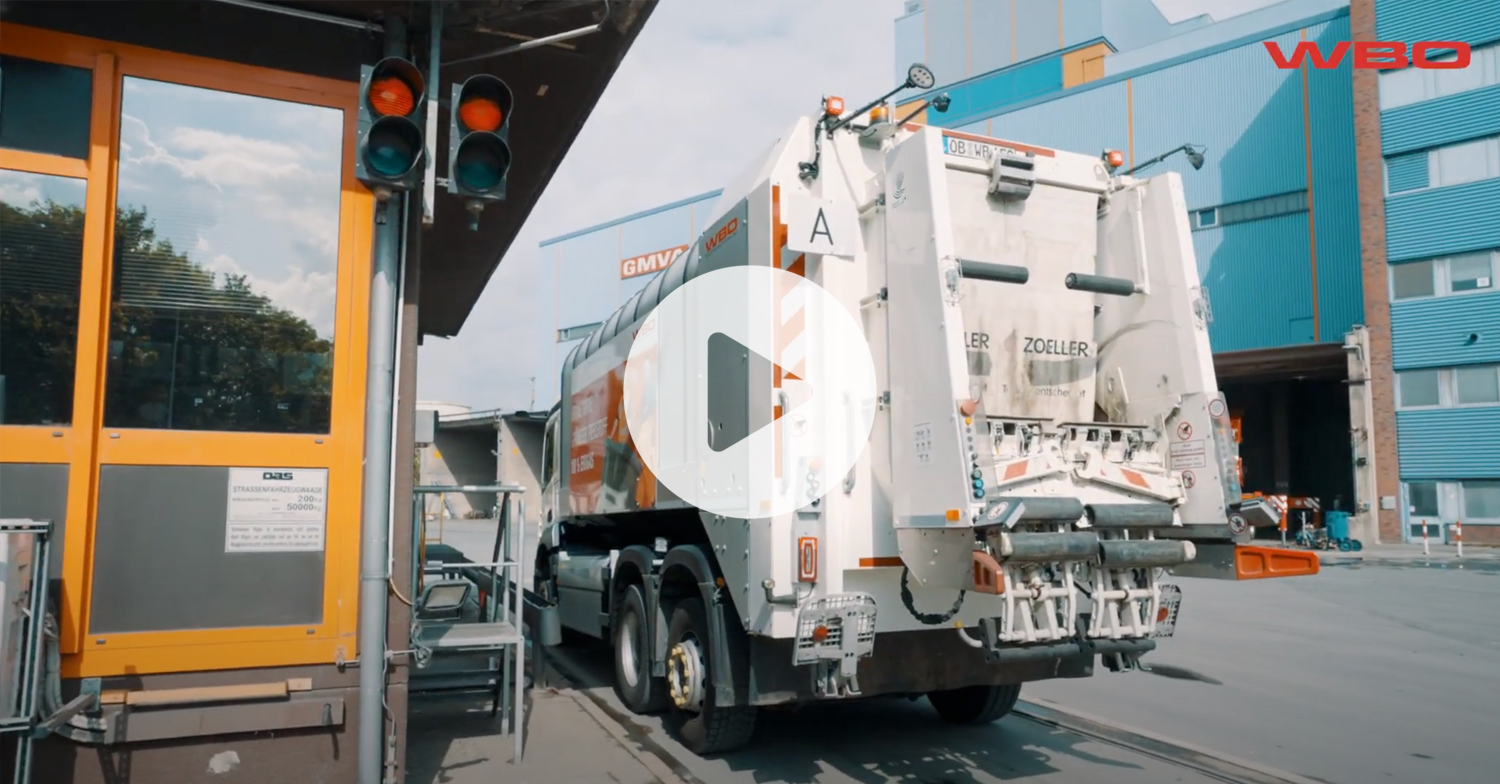It’s 7 o’clock in the morning. Time for Tabea’s shift to begin. The 23-year-old arrives at WBO Wirtschaftsbetriebe Oberhausen’s main depot on Buschhausener Straße. She runs up the steps in a good mood, greeting her colleagues. “I really like the informal working atmosphere here,” she says as she opens up her locker and changes into her orange overalls. “It’s a secure job with regular working hours.” Two good reasons why this young lady – having successfully completed her first apprenticeship – decided to learn another profession and began an apprenticeship at WBO twelve months ago to become an HGV driver.
Using social media to find apprentices
Tabea is one of ten young people who start an apprenticeship at WBO in Oberhausen every year. Besides carrying out her normal apprenticeship tasks, Tabea was happy to do another assignment this summer: she took on the main role in a short video about her HGV driver apprenticeship course. Jan Küppers, WBO’s press and PR officer, worked together closely with a videographer to make a series of videos with the apprentices – giving them the opportunity to describe what their work entails and why they enjoy their jobs. The goal: to make young people aware of WBO as a potential employer and to get them interested in such a career. “We have completely revamped the way we recruit our apprentices,” explained Karsten Woidtke, Managing Director at WBO in charge of operations. “Traditional job ads simply don’t work anymore. Our new concept allows our apprentices to use their own voice to talk about their jobs. And we need to go to where the young people are nowadays. Which is why we made seven videos and uploaded them onto social media platforms as that’s the place to find them. This targeted approach enables us to tell them about our different apprenticeship courses.” And the plan worked. “We’ve had twice the number of applications since then,” Karsten Woidtke was pleased to report.
It’s all about the technology
Tabea and her two colleagues have now picked up their vehicle and made their way to a nearby residential area to empty the black bins. Her job today is to stand on the step at the back of the lorry and empty the bins. When her colleague in the driver’s cab stops the lorry, she jumps down and pulls the bins over to the back of the truck. “Sure it’s physical work but to be honest anyone can do it,” she says, skilfully manoeuvring the bin to the lifting gear. “It’s more about the technology rather than physical strength,” she continues laughing, before pushing the empty bin back onto the pavement and jumping onto the step. Time to move on to the next bin.
What is perfectly normal for this 23-year-old – a woman doing an apprenticeship to become an HGV driver and working in the waste management sector – is still the exception rather than the rule. “We have 400 employees and just under 60 of them are women – although that is still 15 percent,” Karsten Woidtke continued. “Everyone works really well together and we’re always pleased whenever we get an application from a woman.” And that is not just true for the apprenticeship jobs but for all other vacancies at WBO as well.
Work-life balance & appreciation
“It’s a great challenge for us, too, to find suitable drivers for our vehicles,” said Sascha Wieck, HR management team leader at REMONDIS in Lünen. “It became very clear during Covid that the working conditions that we have for our drivers here are good compared to other sectors. Many drivers working at freight forwarders left their jobs to join our company.” The framework conditions speak for themselves: predictable, family-friendly working hours, a healthy business able to withstand crises and good career opportunities. A good number of young people start their careers at REMONDIS and stay at the company until they retire. “We have a good work-life balance here and our employees are both respected and appreciated,” Sascha Wieck continued. That is especially true for young people joining the company. “Once a year, all first-year HGV driver apprentices are invited to a special one-week course. Our trainers have them do a series of practical tasks to get them ready for their exams – for example, getting them to use our driving simulator and practise how to secure loads and how to check their vehicles.”
An affinity with technology & a fascination for large vehicles
To be able to do an apprenticeship to become an HGV driver at REMONDIS and WBO, applicants must have a school leaving certificate and, preferably, a category B driving licence. It’s also an advantage if they are interested in vehicles and technology as HGV drivers not only have to check their vehicles before they begin their shift but also carry out more detailed examinations of their trucks at regular intervals. The staff working at WBO’s workshop help them out here. And the trucks have to be cleaned and maintained properly as they are out on the roads every day. Tabea is sure of one thing: “I’ll be taking my driving test in my second year to get my category C/CE driving licence and then I’ll be able to drive every vehicle that WBO has in its fleet.” It certainly comes across loud and clear that this job is right up her street. But now it’s three in the afternoon and time for Tabea to clock out and go home.













